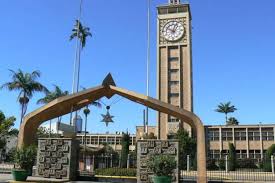Parliament is seeking to curb the importation of substandard goods by traders and to plug tax losses from foreign betting companies through amendments to the Finance Bill 2025.
According to the Chair of the National Assembly’s Departmental Committee on Finance and National Planning Kimani Kuria, some traders are beating Kenya Revenue Authority (KRA) by false declaration of imported goods.In amendments to the Finance Bill 2025, Kuria is seeking water-tight laws to deter growing cases of traders importing finished products such as edible oils and declaring them at the port of entry as raw materials.A new clause in the finance bill will now require importers to present certificate of origin from credible institutions showing details of the cargo coming into the country.
“We have cases in our country where some manufacturers import finished products but declaring them as raw materials, getting exemptions only for the goods to be repackaged and sold as goods that have been manufactured locally,” he said, “The certificate of origin is important as it will also help the government protect consumers of substandard goods.”
The legislator also introduced an amendment to shift the payment of 5% excise duties while betting from when a bet is made to when money is transferred to the betting firm’s wallet.
“When you are placing a bet as it is now, the current taxation regime is say you have money on your airtel or M-Pesa account, and then you transfer that money to the wallet of the betting company. The time of charging of excise duty is when you place a bet, when the money is already placed in the wallet of a betting institution,” Kuria said while moving the amendment on Wednesday evening.
“Now, we are changing that to making the excise duty payable when you transfer money from your mobile wallet to the betting company wallet. There are so many institutions that operate virtually and therefore we are not able to get this excise duty from them, but now it means, everytime you transfer money from your wallet to the wallet of betting company, that’s the time when excise duty is paid,” he added.
Meanwhile, the Mediation Committee on the Division of Revenue Bill, 2025 has reached a final agreement on a KSh 415 billion allocation for the County Equitable Share for the next financial year.
This decision came after extensive deliberations during the fourth meeting of the committee, which included separate sessions with representatives from both the National Assembly and the Senate. The agreed-upon allocation represents a KSh 10 billion increase from the National Treasury’s initial proposal of KSh 405.1 billion, marking a 4.8% growth.
The new allocation of KSh 415 billion is a significant increase compared to the KSh 387.4 billion allocated for the current financial year, reflecting a KSh 27.6 billion rise in funding for the counties.
